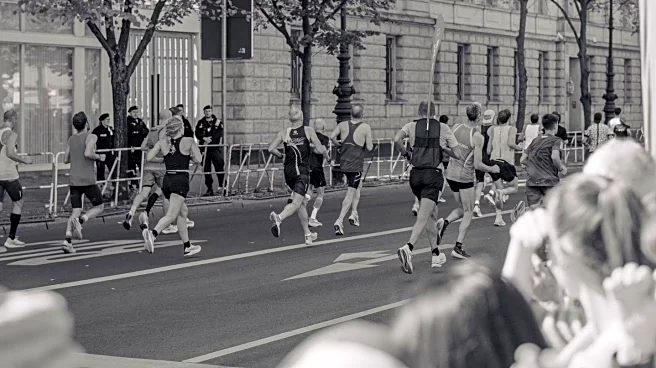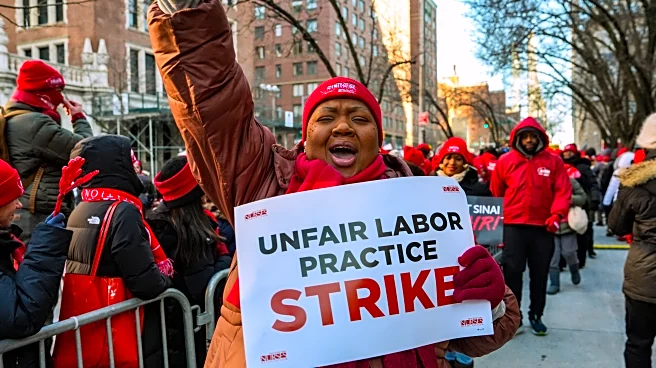What is the story about?
What's Happening?
Victory over Japan Day, marking the end of World War II on August 15, 1945, is being commemorated with personal stories from veterans and their families. Tommy Doherty, a 98-year-old veteran from Lisburn, recalls his service in the RAF in Singapore, where he was deployed with only six hours' notice. His neighbor, Brian Buick, shares the story of his uncle Joseph McCandless, who died in a prisoner of war camp in Borneo in 1945. These stories highlight the sacrifices made by servicemen during the war and the lasting impact on their families. Doherty's experiences include frustration over frequent relocations and interactions with former prisoners of war who felt forgotten after the conflict ended in Europe.
Why It's Important?
These personal narratives provide a poignant reminder of the human cost of war and the enduring legacy of World War II. They offer insights into the challenges faced by veterans and their families, emphasizing the need for continued support and recognition. The stories also serve as a historical record, preserving the memories of those who served and suffered during the war. As the number of living World War II veterans dwindles, sharing their experiences becomes increasingly important for future generations to understand the complexities and sacrifices of wartime service.
Beyond the Headlines
The commemoration of VJ Day not only honors the end of World War II but also prompts reflection on the broader implications of war, including the psychological and emotional toll on veterans and their families. It raises questions about how societies remember and support those who have served, and the importance of preserving historical narratives to prevent the repetition of past mistakes. The stories of veterans like Doherty and McCandless highlight the need for comprehensive veteran care and the acknowledgment of their contributions to peace and freedom.

















